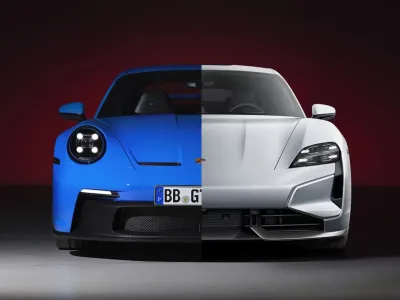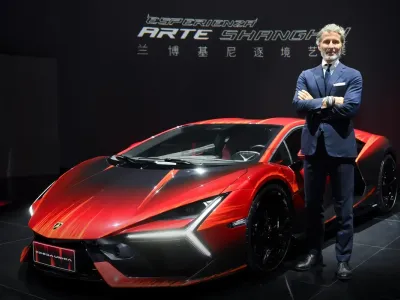Whenever one says ‘Blockchain’, the first thing that comes to mind is usually Cryptocurrency. This technology whose applications have been studied for several years now, especially in the financial sector, has the potential to change much more. It could become crucial now that our society, limited by lockdown and health risks, as I discussed in my previous article, will look for digitalised solutions to improve processes’ efficiency and simplicity.

WHAT IS THE BLOCKCHAIN, WHAT ARE ITS MAIN APPLICATIONS AND DRAWBACKS?
The blockchain is a virtual distributed ledger composed by blocks (hence the name). Each block is distinct from all the others and linked to the previous one by a unique set of data defined by a cryptographic hash which works as a ‘fingerprint’. So, along with the specific information recorded about a transaction and about the people involved, the hash is what makes each block unique and really difficult to tamper with. Not only because any change would affect the hash, but because by being decentralised, every other member of the network would know if any data has been interfered with. If the block does not receive the consensus of the majority of the network, it gets rejected.
As mentioned, the blockchain has first become well-known thanks to its application in the cryptocurrency transaction structure. Unfortunately, due to numerous scandals affecting this new branch of finance, the name itself is often attached to potential unreliability.

For this reason, doubters raise questions about its applicability as well as the assumption of ‘no need for trust’ mentioned as a basic advantage of this technology by its proponents.
Discussing the issues of trust among parties involved in a transaction is a complex subject that would require a much longer discussion. This is why my argument will not consider it in terms of trustworthiness but take the perspective of efficiency and business streamlining instead.
Also, all the further analysis and conclusions are based around the fact that with the blockchain, digital data become unique assets with real value and not just copies shared through the internet as it happens right now.
IS THERE MORE TO THIS TECHNOLOGY THAT OTHER INDUSTRIES CAN LEVERAGE?
So, what other processes can be managed through the blockchain along with financial transactions? Two important ones are the creation of smart contracts and unique records to store any historical data.

While the majority of early adopters were financial and banking institutions such as Barclays and HSBC, in recent years, many others are testing new ways to leverage the blockchain technology. Among automotive manufacturers BMW, Daimler, Ford, GM, Toyota, and VW to name a few. The major application of all these projects is usually the traceability of the supply chain. A big concern for large corporations is the transparency and accountability for raw materials sourcing. This is especially significant in the transition toward electrification, and sustainable business models with the use of rare metals such as cobalt, mainly sourced in Africa.
So, can this technology benefit the luxury automotive industry?
SUPPLY CHAIN
The management of the supply chain, that regards all automotive manufacturers (low-volume luxury automakers too), could be expanded beyond raw materials sourcing verification. For instance, the organisation of the long and complex value chain that each automaker oversees around one common ledger. Having a single record that is constantly updated and clearly visible by all participants would arguably make the whole production process more streamlined and less prone to errors. Collateral consequences of this model are also savings from a ‘paperless business’ and enhanced productivity.
A 2018 annual report of the Business Continuity Institute referenced by Zurich’s Global Supply Chain Product Leader Nick Wildgoose shows how 69% of participants do not have full visibility of the supply chain. The subsequent lack of preparedness when coping with the unexpected disruption caused, according to respondents, financial, logistic, and brand reputation impacts.
PERCENTAGES OF RESPONDENTS WHO EXPERIENCED ISSUES CONNECTED WITH SUPPLY CHAIN DISRUPTION
 *62% Financial Disruption, 54% Logistics Disruption, 54% Reputation Disruption
*62% Financial Disruption, 54% Logistics Disruption, 54% Reputation Disruption
Source ©BCI Supply Chain Resilience Report 2018
Similarly, having a single document shared through a distributed network would improve speed and efficiency as well when transmitting information about new technologies or product updates to the entire network. The reduced fragmentation is especially important in this digital era, where products, even in the automotive industry, have a shorter life cycle.
New applications are also exploring the possibility of maintaining private certain transactions within the distributed chain when necessary. For instance, if two parties have a smart contract in place with a special pricing agreement that they do not wish to share with other participants in the supply chain.
INSURANCE AND OTHER SERVICES
Insurance is another field in which the blockchain is already being adopted. In the luxury segment, it could be even more relevant both because customers are more demanding, and because the services are more expensive than those for regular vehicles. Estimates vary quite a lot, but the luxury vehicle usually commands at least a 20% premium over a regular one.
Data recorded in a blockchain can provide a more detailed and comprehensive picture of such a limited customer base, which translates into better insurance products. The same data record could help not only insurers but also manufacturers with vehicle servicing efficiency and general improvements on other exclusive initiatives for clients.
VEHICLE’S SERVICE HISTORY
Blockchain technology has the potential to help luxury car manufacturers developing a unique database for vehicles’ service history. With the high value of the pre-owned luxury car market, this is such an important factor determining how cars keep their value or depreciate. Connecting a car via blockchain to the manufacturer, allows the company itself to verify any maintenance service ever done on it.
Also, a similar application would ensure tamper-proof odometers (important for any type of used car) as well as a detailed track-record of every past owner and any other relevant information about each car.

With high luxury cars, a relatively high-mileage, 20,000 to 40,000 miles can translate into a £10,000-30,000 depreciation.
By creating a network between owners, dealers, and manufacturers, the information would be easier to access and to control, benefitting all parties involved as well as potential new customers.
CONCLUSIONS
Despite having been around for quite a while now, blockchain technology is still in its infancy in terms of adoption and development in many industries. Detractors criticise the assumptions that trust is not needed with such a secure system and that each individual should be able to personally check the reliability of this data which is hard work. Taking into consideration all these factors, the blockchain still has the potential for relevant evolutions in specialised environments, like it is happening for IBM investment in the Hyperledger project.
In the luxury automotive industry, a large share of the customer’s journey revolves around the close relationship with the manufacturer, the dealers, and other parties involved at different levels. This process does require trust as much as it does require human interaction. The two things are not mutually exclusive though, and regardless of the ‘trust’ factor, the technology application can favour both parties in different ways. The change in customer data could also significantly impact companies’ marketing strategies in the long term, along with the other aspects mentioned before.
Finally, the benefits of this technology in several business areas are evident and being explored by numerous players in this space. In the luxury automotive segment, the widespread application of blockchain could still take time, but it should have a role in the increasingly digitalised and data-based market.
If you like what you read here and you would like to support me in developing this platform you can do it here:
IF YOU WOULD LIKE TO SUPPORT ME AND THIS WEBSITE’s DEVELOPMENT







